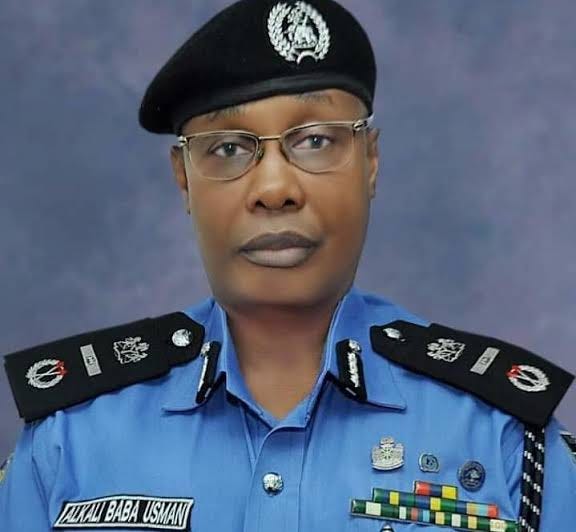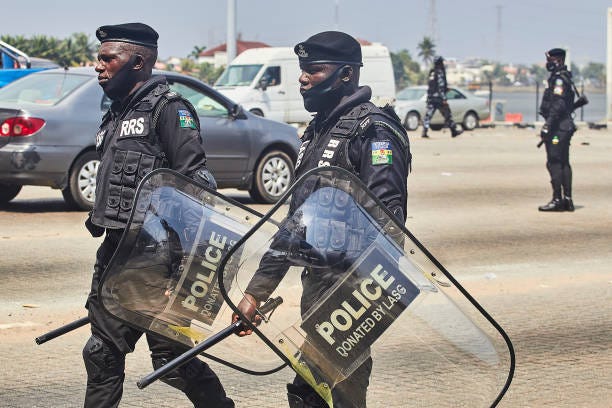The news came out as a big surprise; the youths in the south of Nigeria are no longer willing to make policing a career. They have repeatedly shunned different police recruitment exercises. The police authority itself did not take it lying low; whether borne of hypocrisy or as a real concern the police authority cried out. It says in the future the development will affect the police. How? In one way, the top hierarchy of the police will be made up of the northerners only, if this trend continues. It won't reflect the federal character principle as required by the constitution. The police will be entirely dominated by the north, not by design, but by omission and commission on the part of the southerners.
What could have caused this? Youth unemployment is the greatest problem of the nation. It is the reason for virtually all the crimes in the nation currently. The president announced that there was no more vacancy in the federal civil service and so the youths should look elsewhere. The private sector is groaning, the banks are retrenching and the nation's youth professionals are trooping to nations abroad, some for menial jobs, some highly qualified ones for professions there. Amazingly, police is one job Nigerians consider very top among the list of 'juicy' jobs in the country.
When Nigerians say a political appointment is juicy or a job is juicy, they mean there is much money to make or steal in that ministry or job. Most Nigerians do not depend on their salaries alone, there has to be opportunities for extra earnings either through extortion or bribery or direct stealing.
That is the only way life could go on in the cities and towns where cost of living shoots through the roof every day. How does a civil servant live in very expensive cities as Abuja and Lagos where accommodation runs into hundred of thousands of naira and where rents are demanded in advance of two years and where salary and allowances for a month does not cover the cost of transportation. The employers know but pretend as if it does not exist. They know that extra earnings through stealing or bribery or extortion cushions life in these cities, but they slam draconian rules on corruption and the more they do, the more these hapless workers find ways to beat the regulations.
A businesswoman joked with this reporter; saying, “no matter how smart you are, if you become the president today and you do not prevent civil servants from interfacing with people, you cannot stop corruption.” She feels only computerization can tame corruption in Nigeria when everything is processed online and where there is no physical contact. In short, she advocates e-government where paper work is reduced to the barest minimum.
Police is one organization that offers tremendous opportunities for Nigerians employed there to make extra money. When Nigerians seek recruitment in the police, the attraction is not the emolument or patriotic service opportunity but largely the illegal earning it can offer.
This reporter witnessed a case many years ago at a police station in Lagos. A policewoman was just resuming duty in the morning, she had a young boy to interogate. She first extorted some money from the suspect and pronto she went for some balls of amala meal and ewedu soup in a near by canteen and then she came back to conduct the interogation. A few hours later, the Divisional Crime Officer, DCO also sent for amala and ewedu soup with a rich supply of assorted meat, all supplied by money extorted from suspects. The reporter was invited to that hearty meal but he turned it down.
A police officer does not need to carry cash with him when he goes out as long as he wears his uniform. Everything is obtained almost free, which range from transport and even some purchases sometime, not because it is officially ordained but that is the unwritten order. When he is without his uniform, he can also bully his way through. So why are southerners whose lives have become a misery shun such a 'juicy' job?
In the United States of America, the Federal Bureau of Investigation (FBI) faced similar problem when the youths in America did not take interest in recruitment into the federal law enforcement agency. The reason was that the salary in FBI did not compare favourably with other available options in the nation. But the FBI has reputation; it is essential for the continued peace of the nation and it had performed creditably in past years, so the head of FBI adopted the practice of going around the nation appealing to the sentiments of American youths and he was able to reverse the trend.
It is doubtful if that strategy will work in Nigeria because of the low reputation of the police. Though the police want Nigerians to believe that the organization is their friend, Nigerians do not think so. As a matter of fact, the police is reputed for gross human rights abuses. For example, the Special Anti-Robbery Squad (SARS), which was disbanded by the government due to youth protests in 2020, had attained notoriety for police excesses and savage brutality.
In Nigeria police salary is very poor but it offers opportunities many always hope for. Simply put, it is an opportunity for bribery and corruption. It is not a recent phenomenon. From the colonial days, policemen on very low salaries have been known to have acquired vast properties far out of tune with their pay. So despite this, why are the southerners shunning the police and why are the northerners embracing it. The reason is not far-fetched. Opportunities for career advancement has been reportedly sealed for the south. The social media have been used to expose this. Many serving and ex-service policemen have lamented this. They got to the various police colleges with similar qualifications, or even higher qualifications, but their northern counterparts get easily promoted when they get to the jobs after graduation.
Since after the civil war only one Igbo officer has been appointed Inspector General; there have been a sprinkling of Yoruba officers. There are allegations that training opportunities locally and abroad are also limited for the southern officers. Though these allegations are yet to be verified. However, most retire at the level of commissioner or assistant commissioner grade while their counterparts from the north made it up to Assistant Inspector General (AIG) or Deputy Inspector General (DIG). In virtually all cases, the northerners have clinched the topmost post of IG.
The practice heightens in the administration of President Muhammadu Buhari where nepotism is the bane and the federal character principle is discounted in appointments. This seems to give the impression that only the northerners can effectively police Nigeria. People point out the failure of the police and other security forces inability to grapple with the security problems in the country as a result of this alleged preference for personnel from the north to mount the leadership of the police. They say, until competence, justice, fairness and equity are enthroned in recruitment into the police and other federal organizations, so will the disfavoured sections of Nigeria continue to withdraw their services and so will Nigeria continue to be divided.
Police Recruitment Negates Federal Character Principle, Gov Diri
In a related development, Bayelsa State Governor, Senator Douye Diri has faulted the recruitment procedure into the Nigeria Police Force (NPF), saying it negated the federal character principle.
Diri said recruitment into federal agencies that are based on a number of local government areas in a state was unjustifiable and lacked merit.
The governor, who stated this at a town hall meeting organised by the state government in collaboration with the Police Service Commission in Yenagoa last Friday noted that equitable recruitment can only be achieved if the process was in tandem with the federal character principle as enshrined in Nigeria’s Constitution.
While calling for a review of the anomaly, Diri in a statement said no state was superior to another irrespective of size and population.
His words: “I have one concern and that is on recruitments done in this country based on local governments.
“As you can see, Bayelsa has only eight local governments. So how do you justify equitable recruitment based on federal character principle as provided in our Constitution when you recruit from 40 local government areas in a state like Kano and here you are recruiting from only eight local government areas?
“There is no justice and equity in that. As a representative of the Police Service Commission chairman, please take this back to your commission that the recruitment process in our country is not justifiable, is not fair and there is no equity in it.
“It is only at a forum like this we can tell ourselves the truth. As a federation, every state government, no matter how small, should be considered by virtue of the federal character principle in our Constitution.”
While describing the town hall meeting as very apt and productive, the governor called on participants to see it as the best way forward in the security of the state and the country.
However, the commissioner representing the south-south zone, Mr Austin Braimoh stated that the commission was building a new police force for the country and urged qualified youths to take advantage of the recruitment exercise and contribute their quota to nation-building.
While responding to concerns raised by the governor, Braimoh noted that though the commission has given each local government area in the country 10 slots each for the recruitment process, the issue of inequality would be addressed in the recommendation to the commission’s hierarchy.
In his welcome address, the Bayelsa State Commissioner of Police, Mr. Ben Okolo, said the essence of the meeting was to underscore the importance of the police to the citizens and as well encourage the younger generation to be recruited into the force to fight crime.
Guest Writer:
Tunde Akande is both a journalist and pastor. He earned a Masters degree in Mass Communication from the University of Lagos.









What benefits is on this platform?